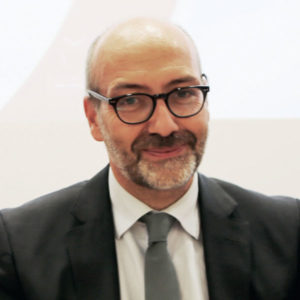Editorial by Emilio Ciarlo
“And now I know that we must lift the sail
and catch the winds of destiny
wherever they drive the boat.”
(E. L. Master)

In the world before the Great Crisis of 2008, development seemed to have entered the autopilot. The growth of world GDP has been traveling around 4% for a few years, Freedom house celebrated record numbers of electoral democracies (123 in 2006), conflicts diminished, countries seemed truly “developing”, supported by the strength of globalization and of the internationalization of the markets that already took care to rebalance, apparently sweetly, the political and economic weight of various continents, distributing in a better way the possibilities for growth. Development aid itself, in that favorable context, could decline and it did: from the peak of 0.320 in 2005, it went down to around 0.30% in the following years. The developed countries that emerged from the great crisis now find themselves in a different scenario. Not so much in terms of economic data but for the changed “spirit of time”. Democracies are in trouble, their leadership is seriously challenged and, with it, the values of the pre-crisis world: the globalization of rights, the authority of global institutions, the promotion of peace. Fear has taken over and, with it, its worst maidservants: selfishness and anger. The development has disengaged the autopilot: the conversion to an environmentally sustainable economy is far from coming, the idea itself is being challenged and technology has controversial effects on development. The possibility of “jobless growth”, especially in Africa, is a real problem; inequalities grow, even within richer societies, in 2016 the number of undernourished people has returned to grow for the first time in 15 years, 258 million people are forced to leave their countries (+ 49% compared to 2000) causing instability in the destination countries and depletion of resources in those of origin.
Now we need to go back and think about the route. We cannot find it traced in front of us anymore. This is also why “Oltremare” is born, a “Blogazine” that has the aspiration of becoming a place of debate and ideas for international development in Italy. The choice of the word “Oltremare” is an invitation to go beyond the fears and the closures, to go back to the curiosity and the opening of the first explorers, to remember a long history of travels and meetings with other cultures. This has brought in 1900s to the creation of the Istituto Agronomico d’Oltremare, which today houses the headquarters of the Agency in Florence – to speak again about international solidarity and shared prosperity. We will do it, trying to involve intellectuals, universities, civil society, journalists, field workers, experts from international organizations around our themes: poverty reduction and inequality, human rights protection, conflict prevention and promotion of peace. We will do it around the four sections of our Blogazine and summarize the four cardinal points of the Agenda 2030: People, Prosperity, Planet and Peace.
There will be space to present the initiatives and projects of the Italian Agency for International Cooperation, for the contributions of our offices abroad, the testimonies of those who work with us, interviews for Italian and foreign personalities. We will try above all to think, deepen and bring Italy into the international conversation on development, giving form and strength to the concept and style of Italian cooperation, made up of creators rather than planners, going beyond huge financial flows. In this issue we have chosen to start with “the” theme of these months: development is security. The subject lends itself to various food for thought. First of all, it presents a motivation for cooperation action that is different from the traditional one (development is solidarity) or from the most recent approach (development is co-development, therefore opportunities). This has a more political cut that is used to arouse consensus in a society which is now not inclined to “internationalism” but which must avoid focusing only on “one’s own security”, on the fears of “our” world, and succeed in communicate the idea of an interconnected and common world that cannot be closed off the borders. These are topics covered in the beautiful interview by Umberto Di Giovannangeli with Emma Bonino, a precious interlocutor for his experience as European Commissioner and Italian Minister of Foreign Affairs.
There is also the need to explain which concrete actions are to be put in place to promote, on the one hand, human development, which itself promotes the protection and dignity of people (Vincenzo Giardina is involved with particular attention to human rights and social phenomena) and, on the other, economic development that leads to prosperity (Gianfranco Belgrano deals with that of businesses in Africa daily). We will also look at the connection between these two, complementary but different approaches from the classical “security” ones (police training, control of the territory, improvement of the instrumental equipment). To say how today crises and conflicts produce poverty, how much climate change causes environmental disasters or drying up land causing hundreds of thousands of environmental migrants (Emanuele Bompan is in charge of the international debate on the environmental sustainability of the planet). Finally, to say “development is security” means facing the dilemma of democratic internationalism: do we have to get our hands dirty, trying to dialogue with regimes and ambiguous characters in situations that are not “politically correct”, to influence the course of things or denounce violations of human rights, unreliability of interlocutors, crimes and oppressions in an action that can turn out to be both noble and sterile?
It is a difficult and legitimate debate, where pros and cons are confused, but that we all have to carry on if we want our world to return to change for the better.






